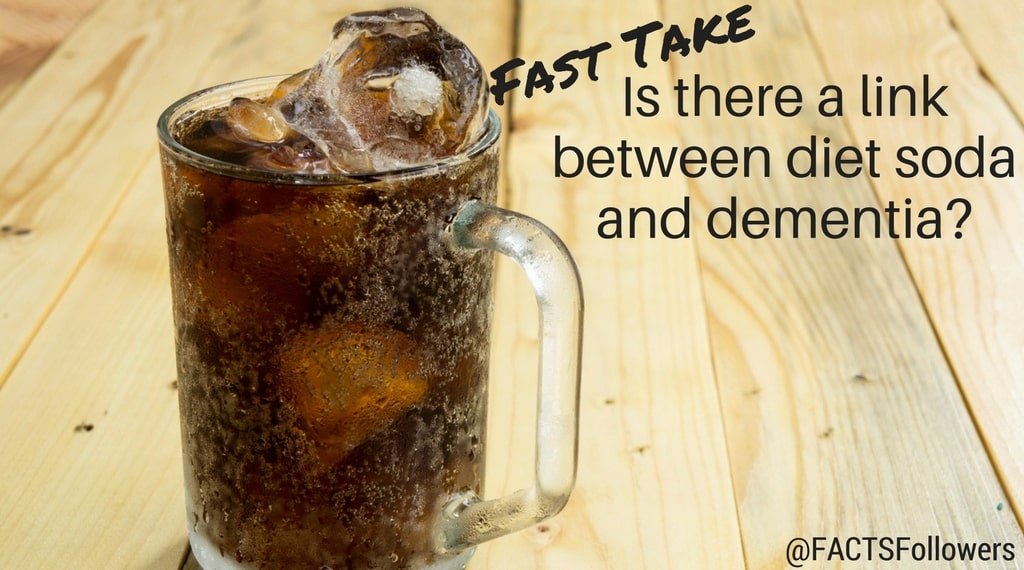A new study has examined the associations between consumption of beverages sweetened with sugar and/or low-calorie sweeteners and stroke or dementia, including Alzheimer’s disease.
This particular observational study (drawing on the Framingham Heart Study cohort) relied on responses to Harvard University’s food frequency questionnaire (FFQ), which asks participants how often and how much they consume different foods, beverages, and dietary supplements.
How are Food Frequency Questionnaires (FFQs) Used in Nutrition Rresearch? 
FFQs like the one used in this particular study play an important role in gleaning more information about dietary patterns over time. Data from FFQs are often used to assess how these dietary patterns may be associated with certain health outcomes.
However, this does not mean that FFQs are perfect. In fact, there are many inherent problems with FFQs. As FiveThirtyEight explains, “People are prone to underreport what they consume, and they may not fess up to eating certain foods or may miscalculate their serving sizes.” In the scientific world, this is known as recall bias.
Problems aside, FFQ data can be quite useful. Observational studies using FFQs can be important first steps in building the greater body of scientific understanding, but they are just that—first steps. These types of studies cannot establish cause and effect; rather they can help inform experimental studies, such as randomized control trials – the gold standard of research design. Having both observational and experimental data leads to scientific advancements in nutrition and food science.
One Study vs. the Totality of Evidence
Now that we’ve covered the utility of FFQs, let’s dive into some of the key findings of this study. Pase and collaborators determined “[s]ugar-sweetened beverages were not associated with stroke or dementia.” However, this study found that drinking at least one artificially sweetened beverage daily was associated with the risk of developing stroke or dementia compared to those who drank artificially-sweetened beverages less than once a week.
If you stopped reading there, you might gasp. Compare these findings in the context of the totality of evidence on the topic, however, and you can take a deep breath. First, it is widely accepted that high cholesterol, diabetes, and high blood pressure are the major drivers for these brain conditions. An accompanying editorial to this article states that the current body of research linking low-calorie beverages with stroke and dementia is inconclusive. Stroke expert at the University of Miami Miller School of Medicine, Hannah Gardener elaborates, noting in regards to brain health, “I don’t think we have the evidence to tell people to stop drinking artificially sweetened beverages.”
What Can We do to Prevent Stroke and Dementia? 
Let’s take a step back and talk about what science has proven we can do to reduce the risk of stroke or dementia, including Alzheimer’s disease. Age (which unfortunately we can’t control) is the greatest risk factor for Alzheimer’s disease. The strongest evidence demonstrates that there are some things we can control to reduce the risk of developing Alzheimer’s disease or related dementia, namely regular physical activity, lifelong learning, and mental stimulation. A heart-healthy diet and maintaining a healthy weight can also help reduce your risk for stroke or dementia. Authoritative bodies around the world (such as the European Food Safety Authority, US FDA, Food Standards Australia New Zealand, Health Canada and US Dietary Guidelines) support the safety and consumption of low-calorie sweeteners as part of a weight management strategy that includes a well-balanced diet and regular exercise. To learn more about the brain’s reaction to various diets and lifestyles, listen to our podcast with Dr. Heather Snyder, Director of Medical & Scientific Relations at the Alzheimer’s Association.
We’d be remiss not to talk about how these findings are being communicated. AHA’s press release titled “Diet drinks and possible association with stroke and dementia; current science suggests the need for more research” is a thoughtful and accurate reflection of what these findings illustrate. However, reading subsequent media coverage on this research has shown just the opposite, leading to a frenzy of stories and headlines spreading fear and confusion.
With this in mind, we (scientists, media, and science communicators) need to work together to do a better job at evaluating the science and communicating appropriately about the strengths and limitations of new studies. So before we start sharing this article and related media coverage as proof that “x” food causes “y” result, let’s make sure we also share the proper perspective on these data. That is, this is one piece of the scientific process that can help inform follow-up research, and ultimately help paint a complete picture of the types and amounts of foods and beverages we should be focusing on to promote good health.
A Few Comments on the Analysis
Associations between consumption and health outcomes were determined using three distinct models, each of which attempted to control for different variables or “confounders.”
According to Anna Maria Siega-Riz, Ph.D. and Professor of Public Health Sciences and Obstetrics & Gynecology at the University of Virginia, this is where the analysis is really nuanced. She further elaborates, “For the outcome of dementia, once they adjusted for various conditions such as systolic blood pressure, treatment of hypertension, and prevalence of cardiovascular disease, the association between cumulative consumption of artificial sweeteners was no longer significant. Thus, the dementia results could be explained away by the presence of these conditions. While these findings were placed into appropriate context within the paper, it was not appropriately communicated out in the media and to the public.”
Matt Raymond, Kris Sollid, RD, and Megan Meyer, PhD, contributed to this piece.

